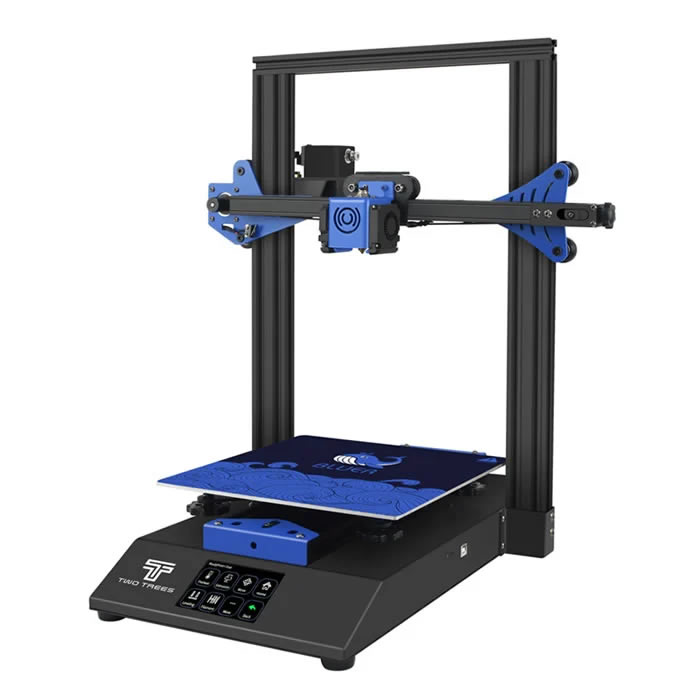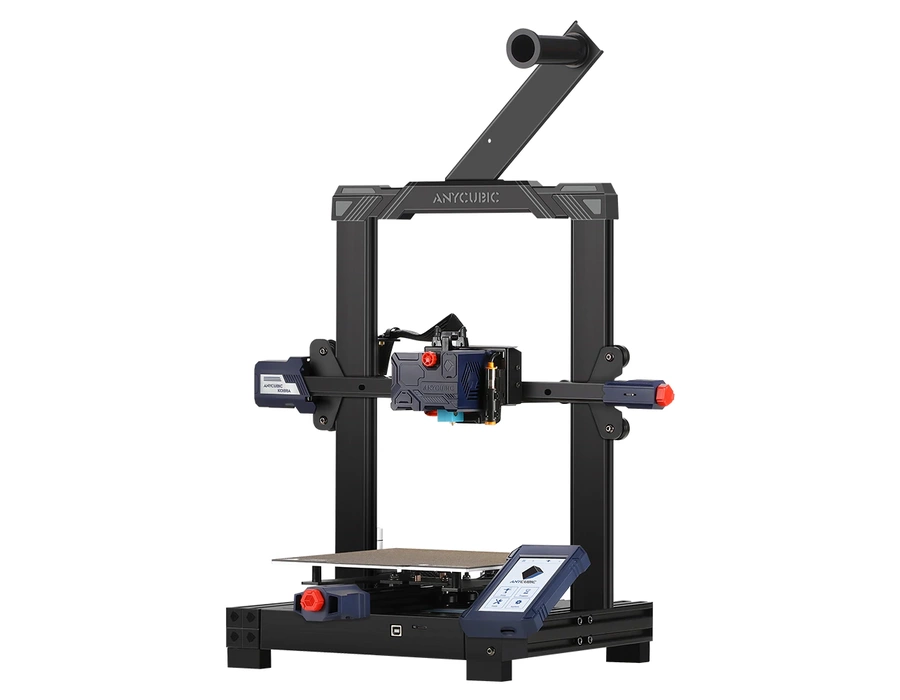Compare Bluer vs Kobra
Comparison between the best 3D printers
Choose the best 3D printer at the best price. The cheapest 3D printers are here.
Buy a 3D printer here with 3D Fila.
 |
 |
|
| Model | Bluer |
Kobra |
| Printing Material | Filament | Filament |
| Buy Filament for TwoTrees Bluer | Buy Filament forAnycubic Kobra | |
| Estimated price | $169,00 | $259,00 |
| Manufacturer | TwoTrees | Anycubic |
| Release Year | 2019 | 2022 |
| Print Volume [mm] | 230x230x280 | 220x220x250 |
| Printer Size [mm] | 400x410x520 | 486x430x486 |
| Weight [kg] | 8 | 7 |
| Power Loss Recovery | YES | YES |
| Enclosed printer | NO | NO |
| Bed Leveling | Manual | Automatic |
| Filament End Sensor | YES | NO |
| Bed type | Heated | Heated |
| Power supply system | Bowden | Direct Drive |
| Standard nozzle | 0,4 | 0,4 |
| Maximum Nozzle Temperature [°C] | 260 | 260 |
| Maximum Bed Temperature [°C] | 100 | 110 |
| Maximum printing speed [mm/s] | 200 | 180 |
| Filament holder | YES | YES |
| Camera for supervision | NO | NO |
| Recommended filaments | PLA, PETG | PLA, PETG, Tritan, Flex, ABS |
| Recommended slicers | Cura, Simplify, Slic3r | Cura, Simplify, Slic3r, IdeaMaker |
| Maximum Resolution [mm] | 0,1 | 0,1 |
| Processor | MKS Robin Nano V1.2 + TMC2208 | |
| Display | Touchscreen TFT 3,5'' | Display touchscreen 4,3'' |
| Power Supply | 240W | 110/220V / 400W |
| Connectivity | SD / USB | SD / USB |
| Operating systems | Windows, Mac, Linux | Windows, Mac, Linux |
| Date of registration in the system | 2021-09-20 | 2022-11-09 |
| Release date | 2019 | 2022 |
| Extra features | The Bluer offers interesting features such as automatic bed leveling, a 3.5-inch color touchscreen for easy operation, and a filament sensor to prevent print failures. It has a robust metal extruder and a generous 230 x 230 x 280 mm print volume, suitable for a variety of projects. The community mentions improvements made by Two Trees based on feedback, increasing its reliability. | The Anycubic Kobra features automatic bed leveling and a direct extruder for easy filament handling. The print bed is coated with PEI on a flexible steel plate, improving adhesion and making prints easier to remove. The printer features sensorless homing and is designed to be easily disassembled for easy maintenance and customization. |
| Support for multiple colors and materials (AMS and CFS) | NO | NO |
Notes * |
||
| Cost-benefit | 7 / 10 | 7 / 10 |
| Hardware | 2 / 10 | 1.8 / 10 |
| Tela | . | . |
| Print volume | 3 / 10 | 3 / 10 |
| Performance | 2 / 10 | 1 / 10 |
Conclusion |
| In comparing the TwoTrees Bluer and the Anycubic Kobra, several key factors stand out that can help prospective buyers make an informed decision. Firstly, the price difference is notable, with the Bluer positioned as the more budget-friendly option, making it appealing for users who are cost-sensitive or just starting in 3D printing. Despite a lower price, the Bluer offers essential features such as a filament end sensor, manual bed leveling, and a slightly larger print volume. This makes it a competent choice for standard printing needs, especially for users who value affordability and ease of use. On the other hand, the Anycubic Kobra, although more expensive, comes with enhanced features such as automatic bed leveling and a direct drive system, which can provide more reliable filament feeding. The Kobra also boasts a slightly higher maximum bed temperature, which can be beneficial for printing with a range of materials that require better adhesion and thermal stability. Both printers exhibit good recovery features from power loss and support for popular filaments, ensuring a decent level of versatility. However, the Kobra shines with its more modern build and slightly better hardware specifications, positioning it as a more future-proof option given its 2022 release. In conclusion, if budget is the primary concern and the user is looking for a reliable entry-level machine for basic printing tasks, the TwoTrees Bluer presents a solid choice. Conversely, if a user is willing to invest more for advanced features, improved handling of various materials, and a more robust construction, the Anycubic Kobra may justify its higher price point. Ultimately, the decision will depend on the specific needs and priorities of the user, balancing cost against desired functionality and print quality. |

